Ian Ph. UX designer
Here!
Me
Bookmarks
Playground
Writing
Project

GenVita - Generali
Capella GenAI
UOB AI-Pitch
Trading Agent AI
OSL Trading
TCB Design system
Omanadala
Online
ian.ph693@gmail.com
Trading platform withevolution, reposition, grow & evolve.
OSL Singpore
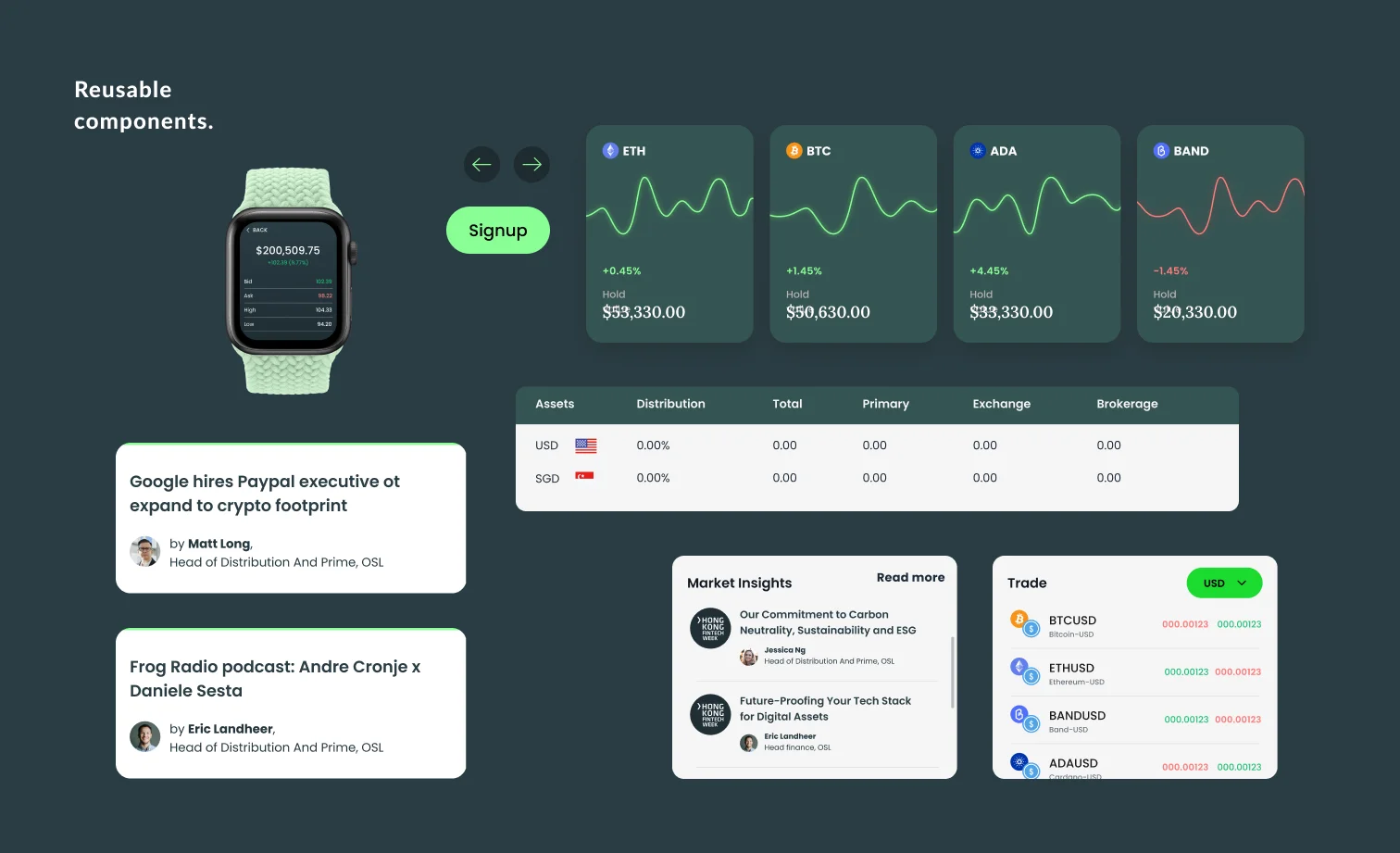
01/ Overview
/ Client
OSL Singapore
/ Duration
3 months – 2021
/ My Role
UX-UI designer
/ Tool
Figma
/ Client Brief
The Public Website.Revamp the public-facing website with a clear information structure, enhanced UX, and features like a newsfeed. OSL will define a digital strategy aligned with your roadmap.
Marketing Personalisation.Upgrade platform capabilities and UX to support more personalised, targeted marketing.
Log-in & Account AccessImprove first-touch experiences like sign-up, onboarding, and login through research and benchmarking against top competitors.
Registration & ServicingDesign seamless, self-service experiences for high-usage products—optimising both ideal and error scenarios.
Community TradingBuild a scalable, engaging trading ecosystem through community-driven insights and gamified financial experiences.
02/ Problem definition
/ UX research
Strategy vs Technology
Product centric information architecture and site mapping directly categories products as main navigation for those who don’t know what the brand or company sells. Some highlights the solutions catered to institutions.
Traditional Investors
Trust and Progress – In addition to the cryptocurrency players, we looked at traditional investors, and learned what they prioritise in their digital channels. Key for most is building trust and leveraging reputation. Additionally there is a continued theme of ‘future-looking’, where content and design speaks to a capability and culture of being forward thinking as an institution. An emergent theme is an emphasis on sustainability.
Onboarding Institutions
Product centric information architecture and site mapping directly categories products as main navigation for those who don’t know what the brand or company sells. Company onboarding with clear checklist and requirements.
Dashboard Experience
Dashboards are home base for users. The usability and utility of these screens can sometimes be the make-or-break of which platform is used. Visualising complex data, empowering decision making and understanding core functions are paramount to winning here.
03/ Design
/ UX research
Strategy vs Technology
Product centric information architecture and site mapping directly categories products as main navigation for those who don’t know what the brand or company sells. Some highlights the solutions catered to institutions.
Traditional Investors
Trust and Progress – In addition to the cryptocurrency players, we looked at traditional investors, and learned what they prioritise in their digital channels. Key for most is building trust and leveraging reputation. Additionally there is a continued theme of ‘future-looking’, where content and design speaks to a capability and culture of being forward thinking as an institution. An emergent theme is an emphasis on sustainability.
Onboarding Institutions
Product centric information architecture and site mapping directly categories products as main navigation for those who don’t know what the brand or company sells. Company onboarding with clear checklist and requirements.
Dashboard Experience
Dashboards are home base for users. The usability and utility of these screens can sometimes be the make-or-break of which platform is used. Visualising complex data, empowering decision making and understanding core functions are paramount to winning here.
/ Human-centered Design
Designing for Professionals.
The principles of human-centred design is to put human needs (aspirations) and problems (pain points) in the centre of our design thinking process which starts by building empathy with the people we’re designing for and solving the right human problems as an approach to product discovery and development.
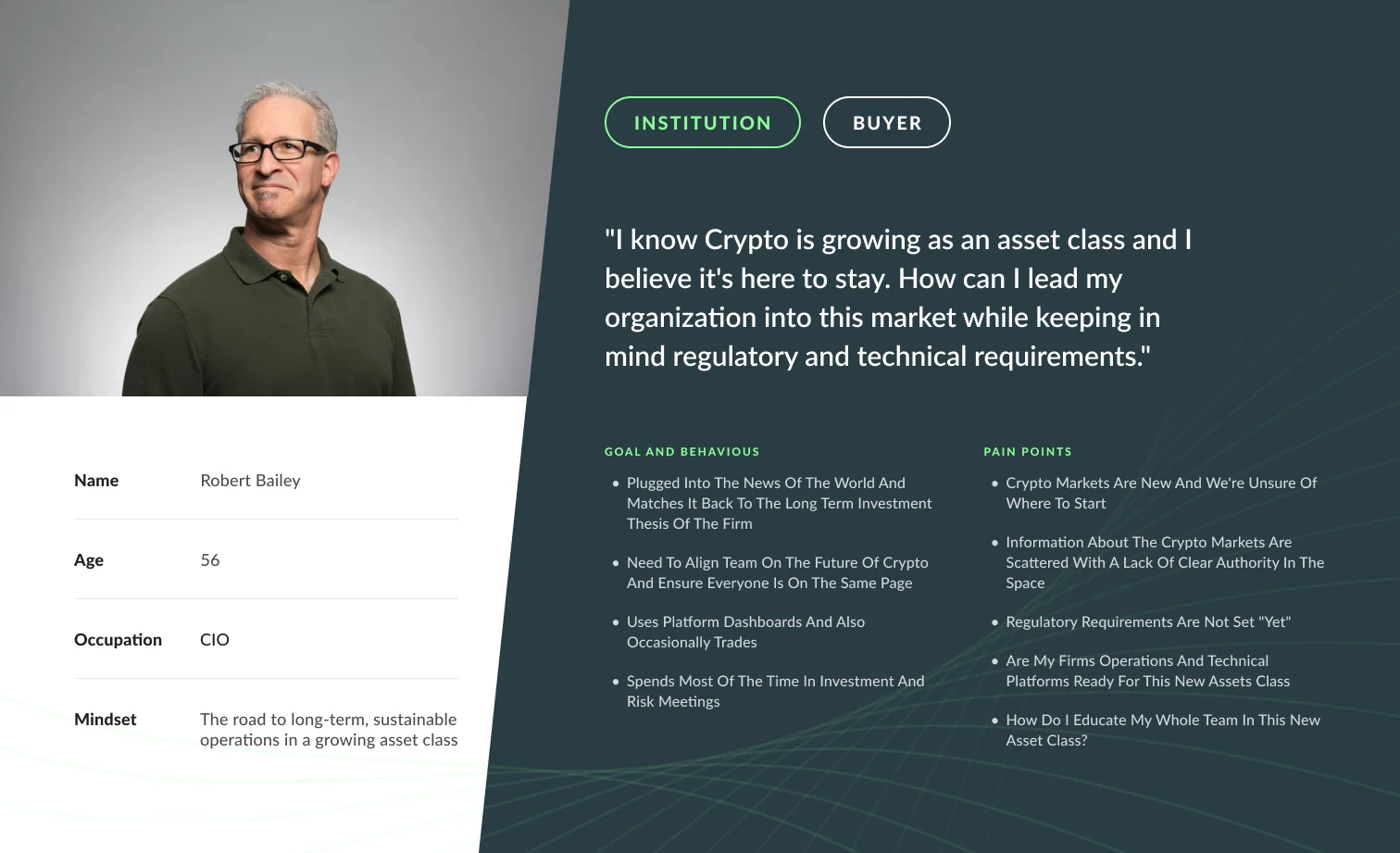
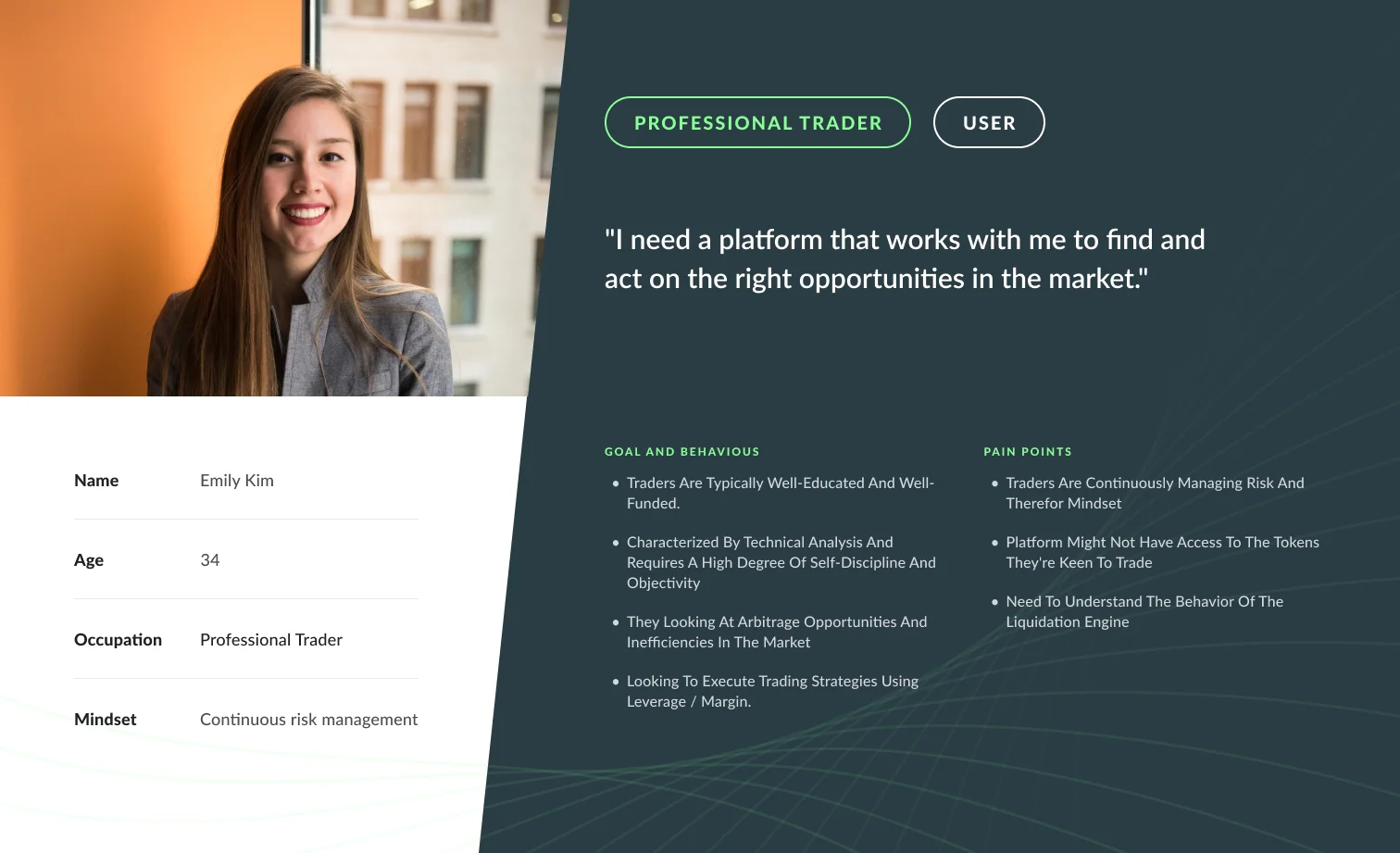
/ User journeys
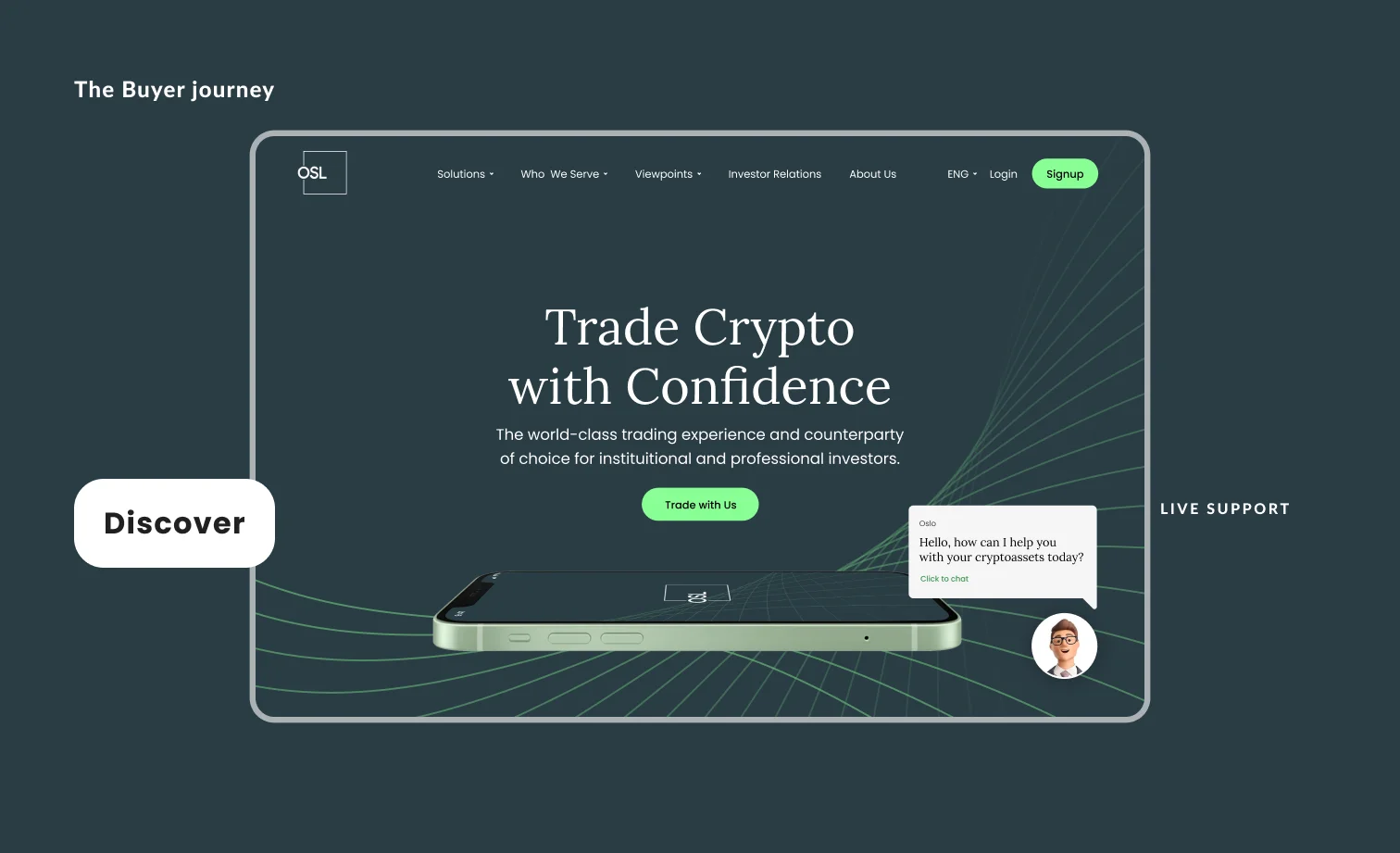
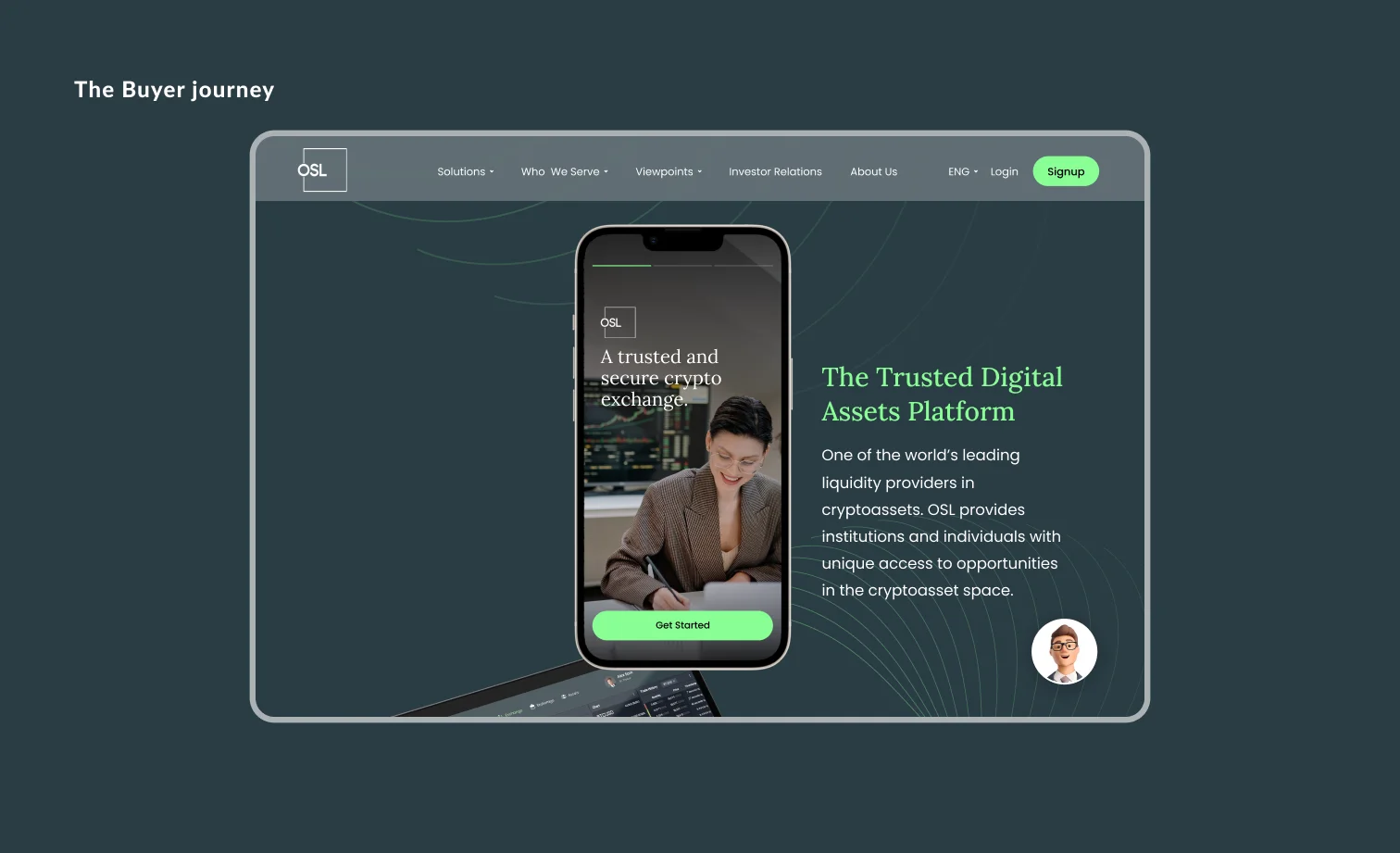
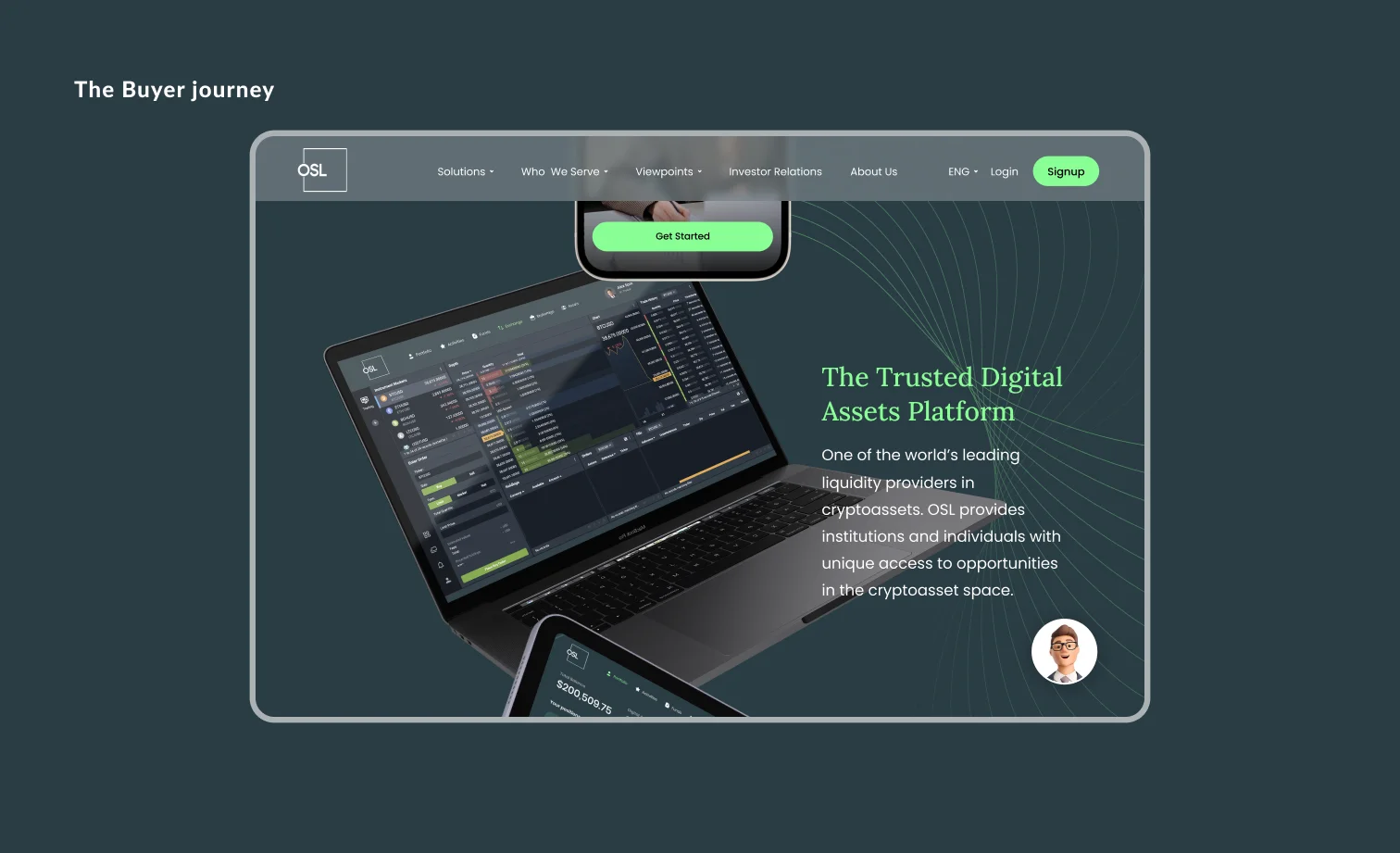
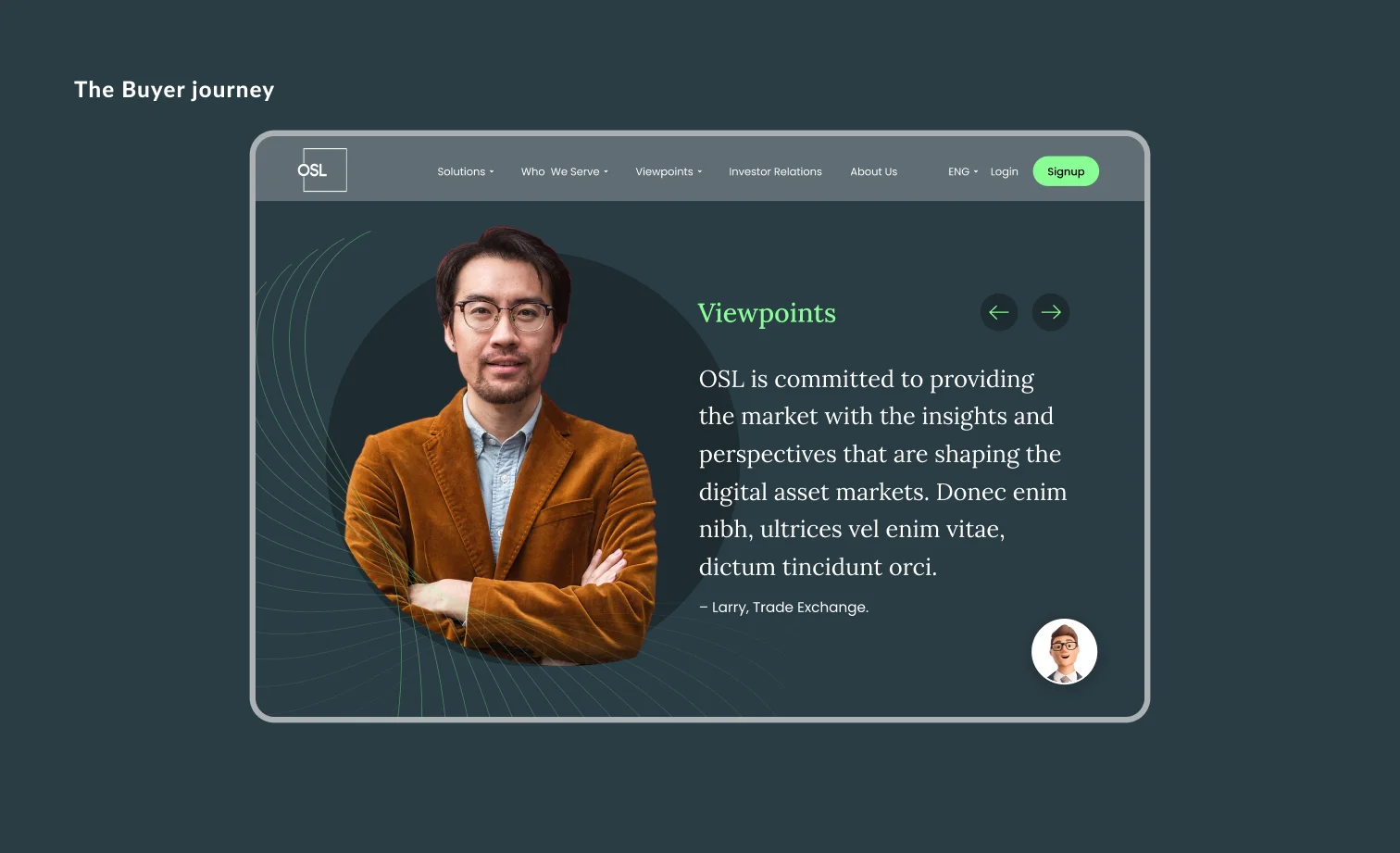
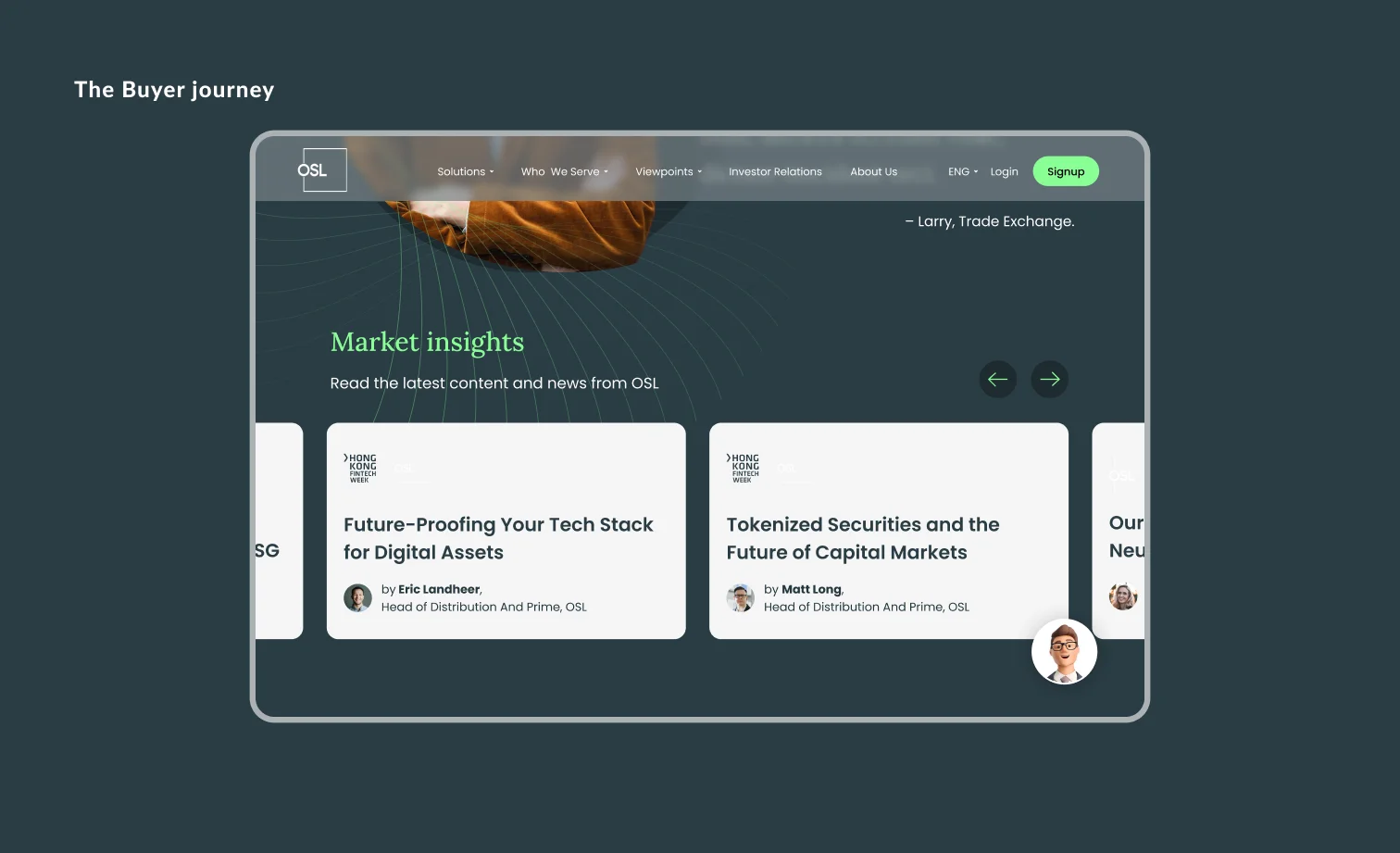
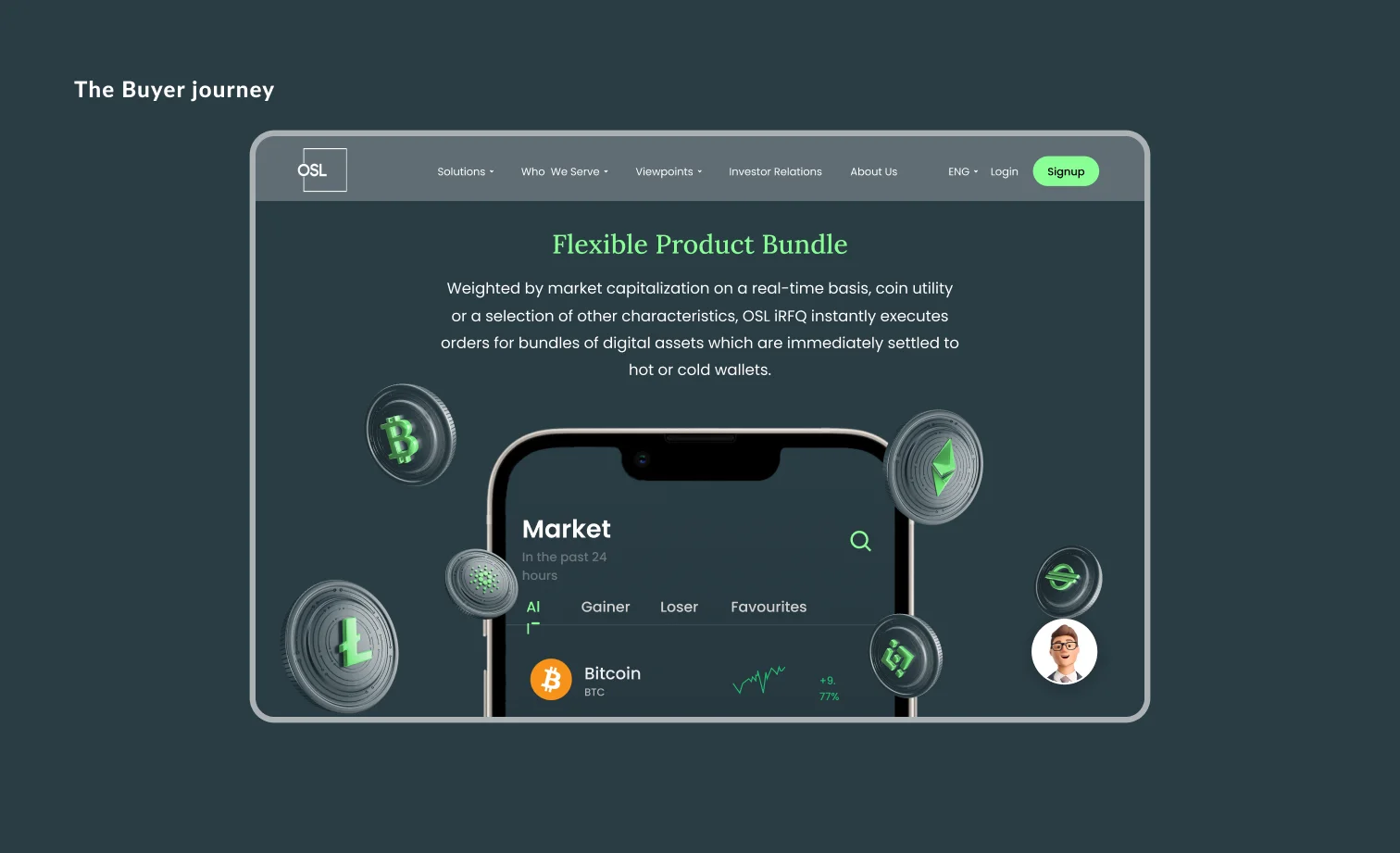
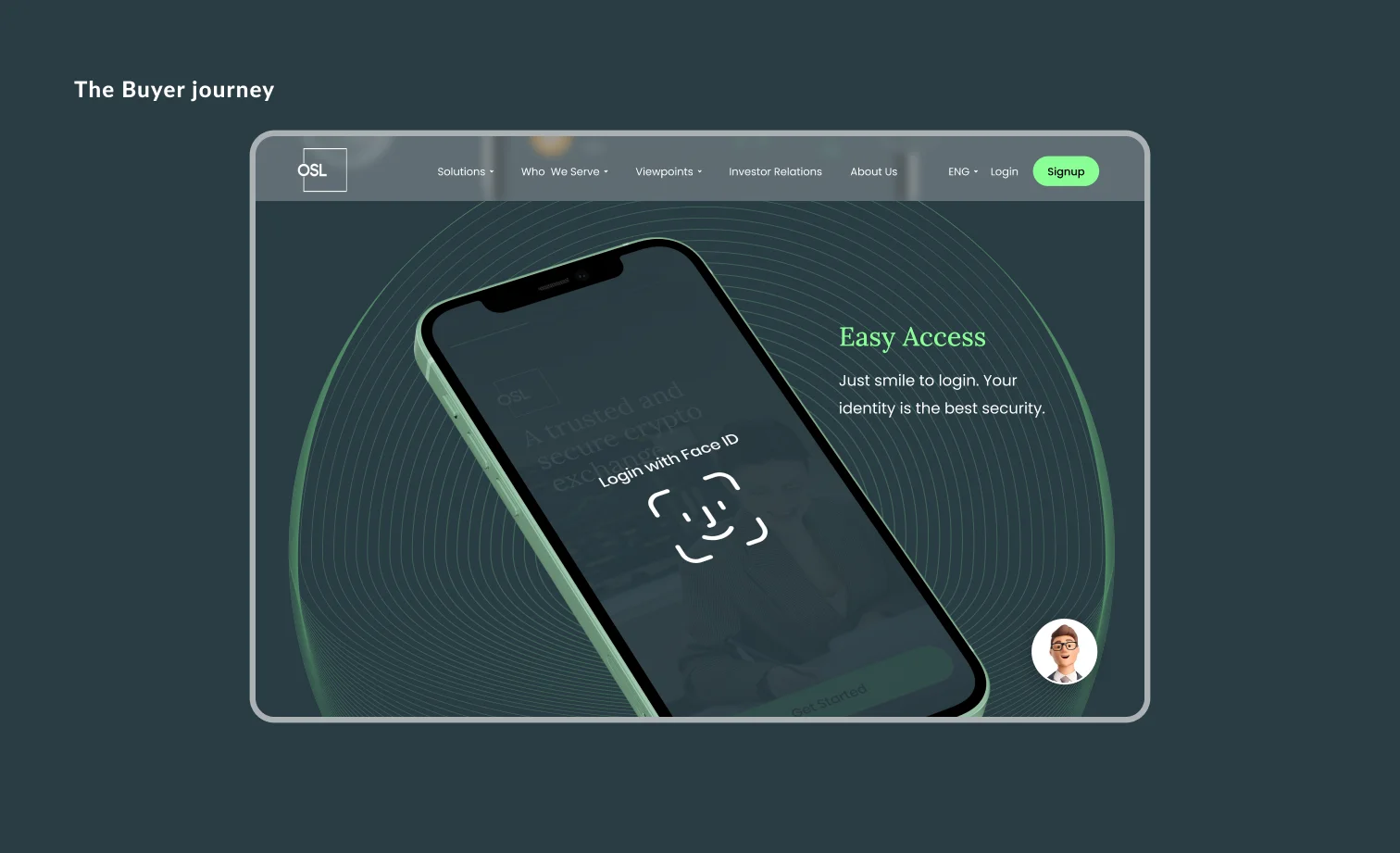
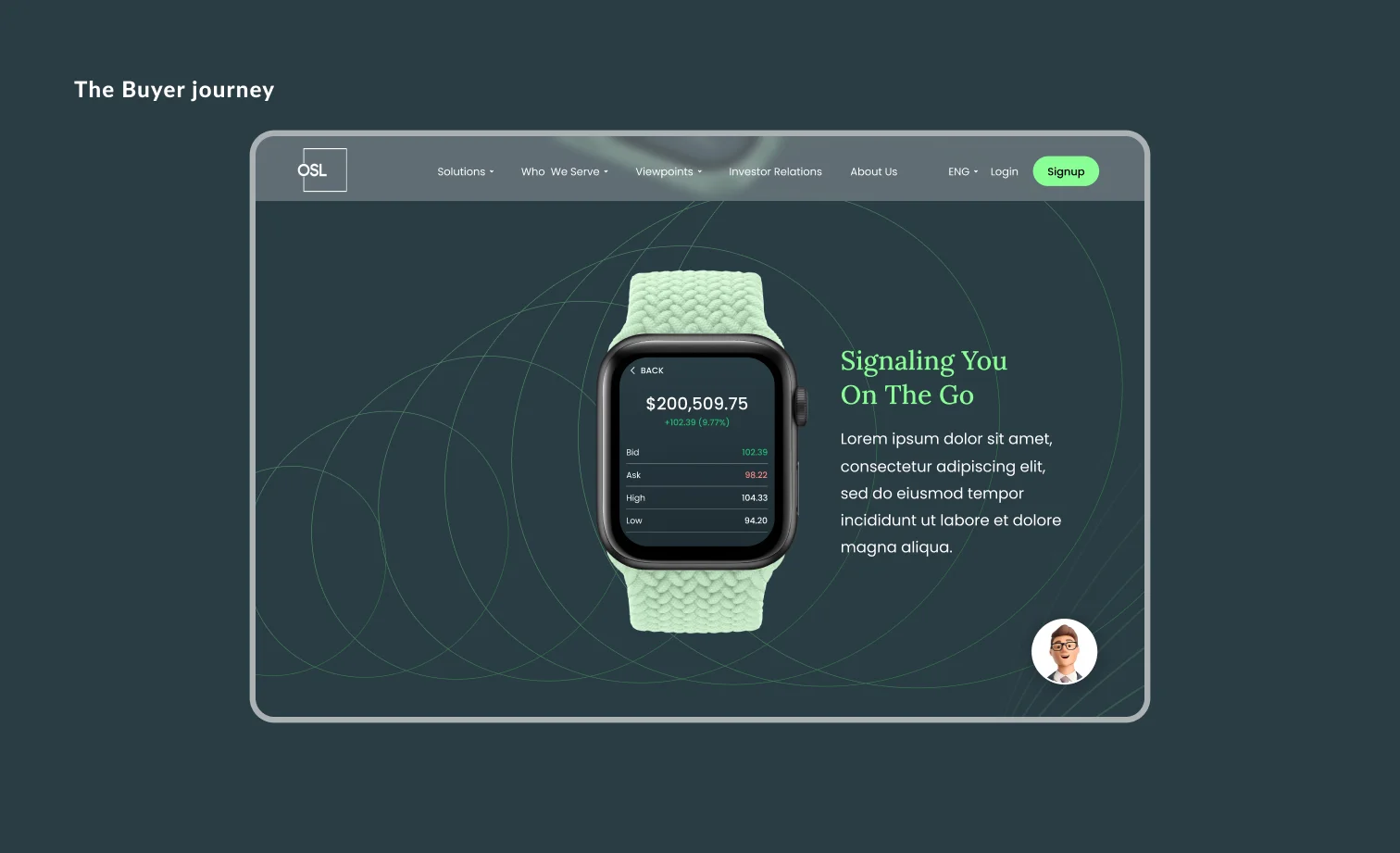
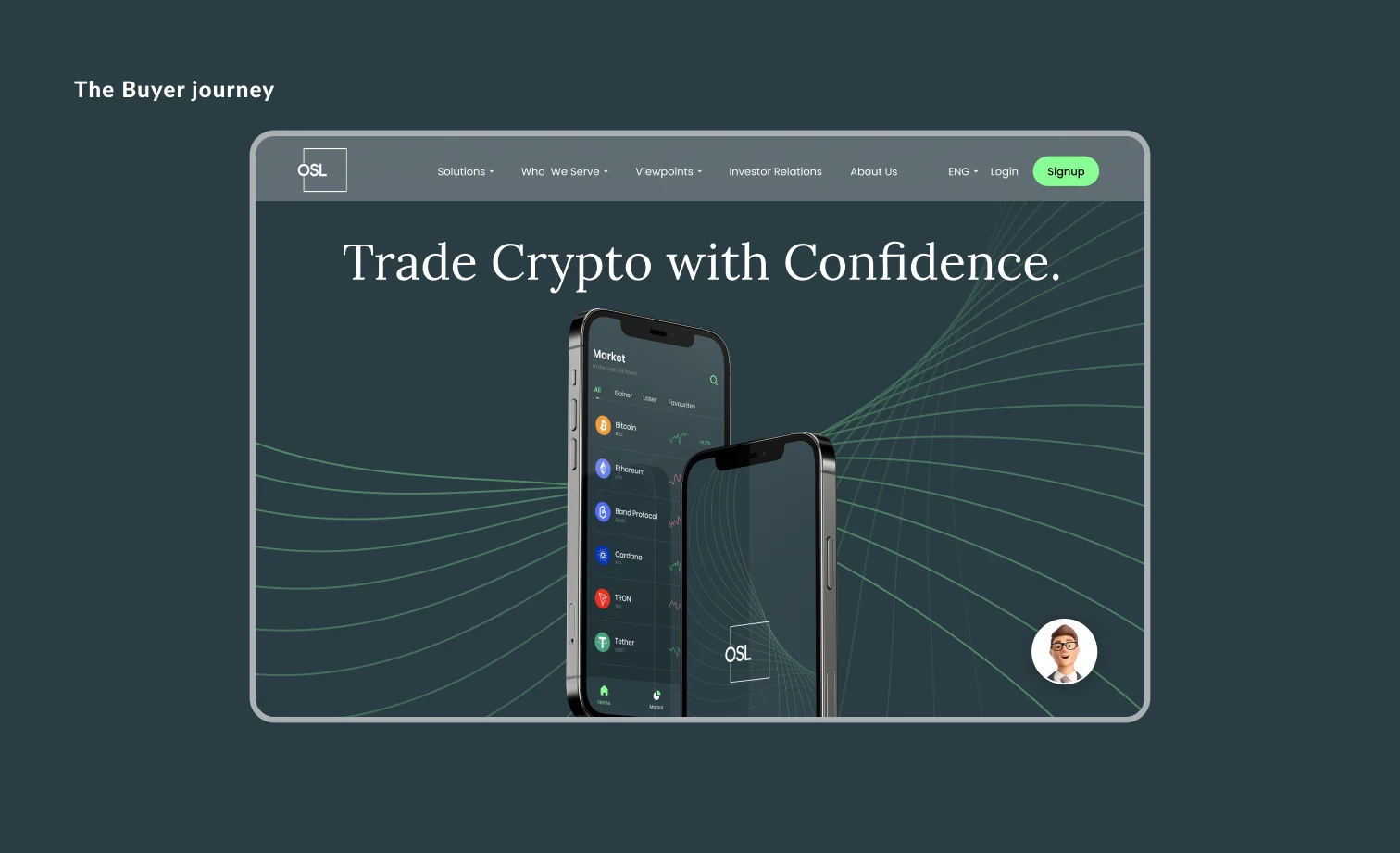
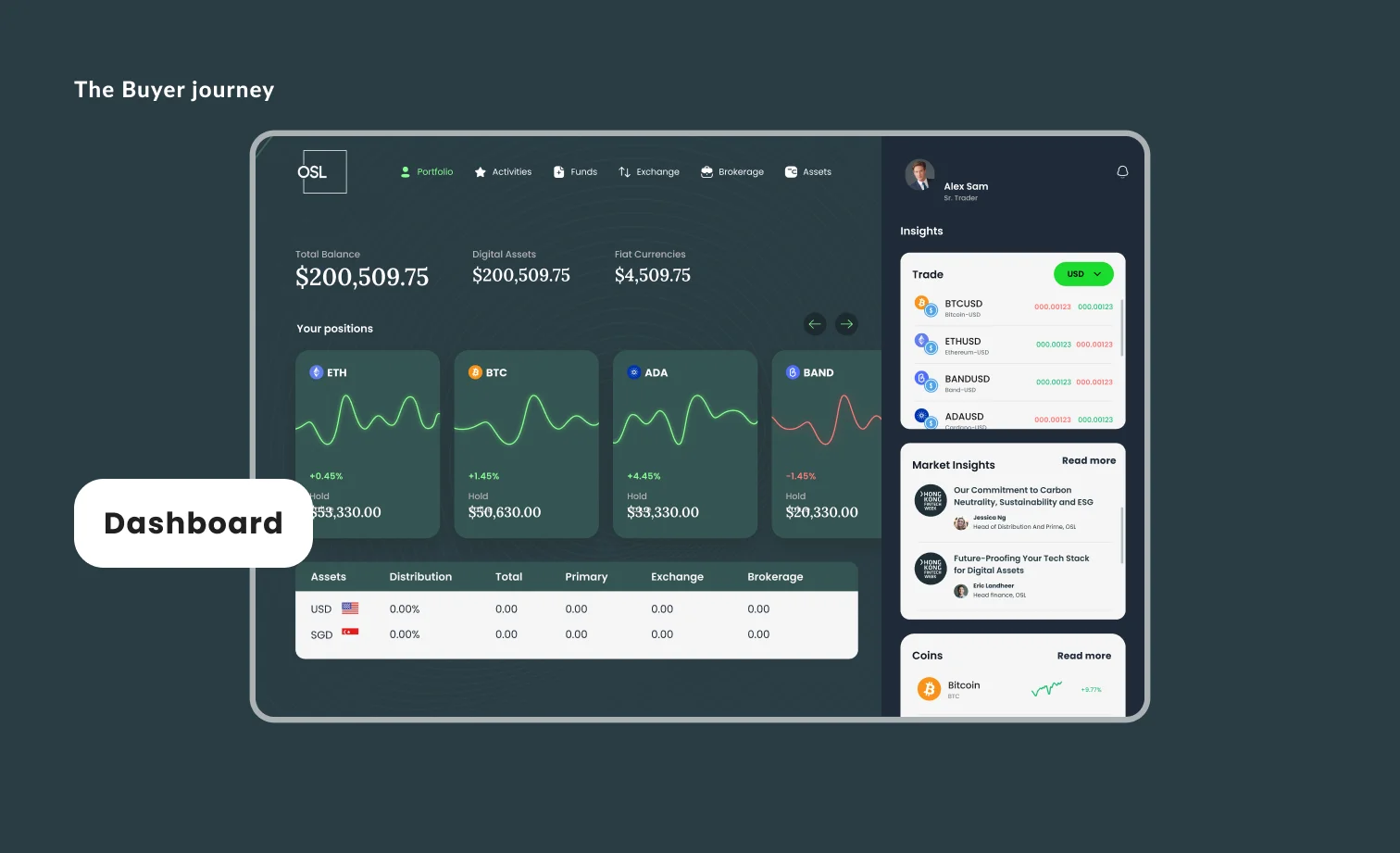
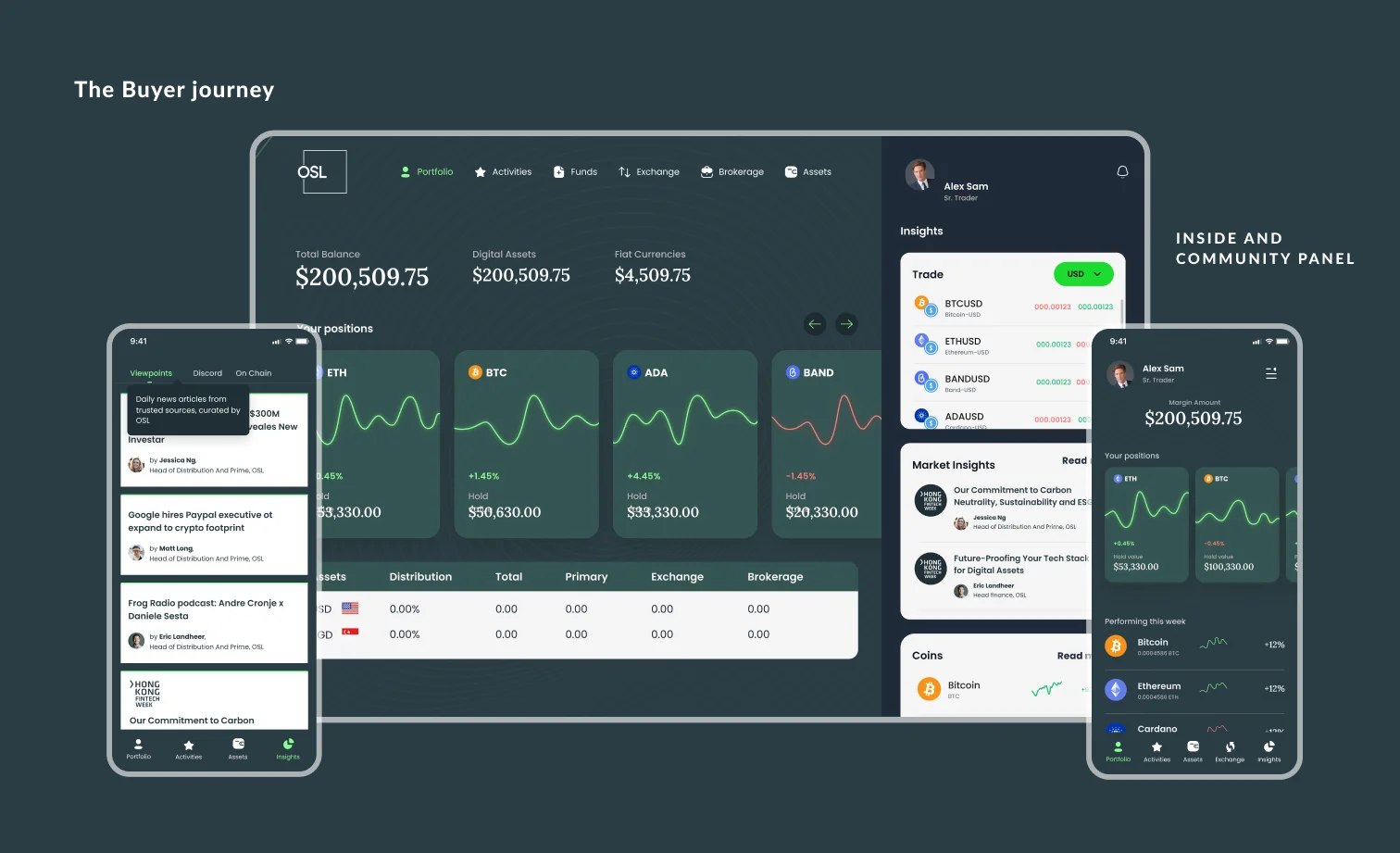
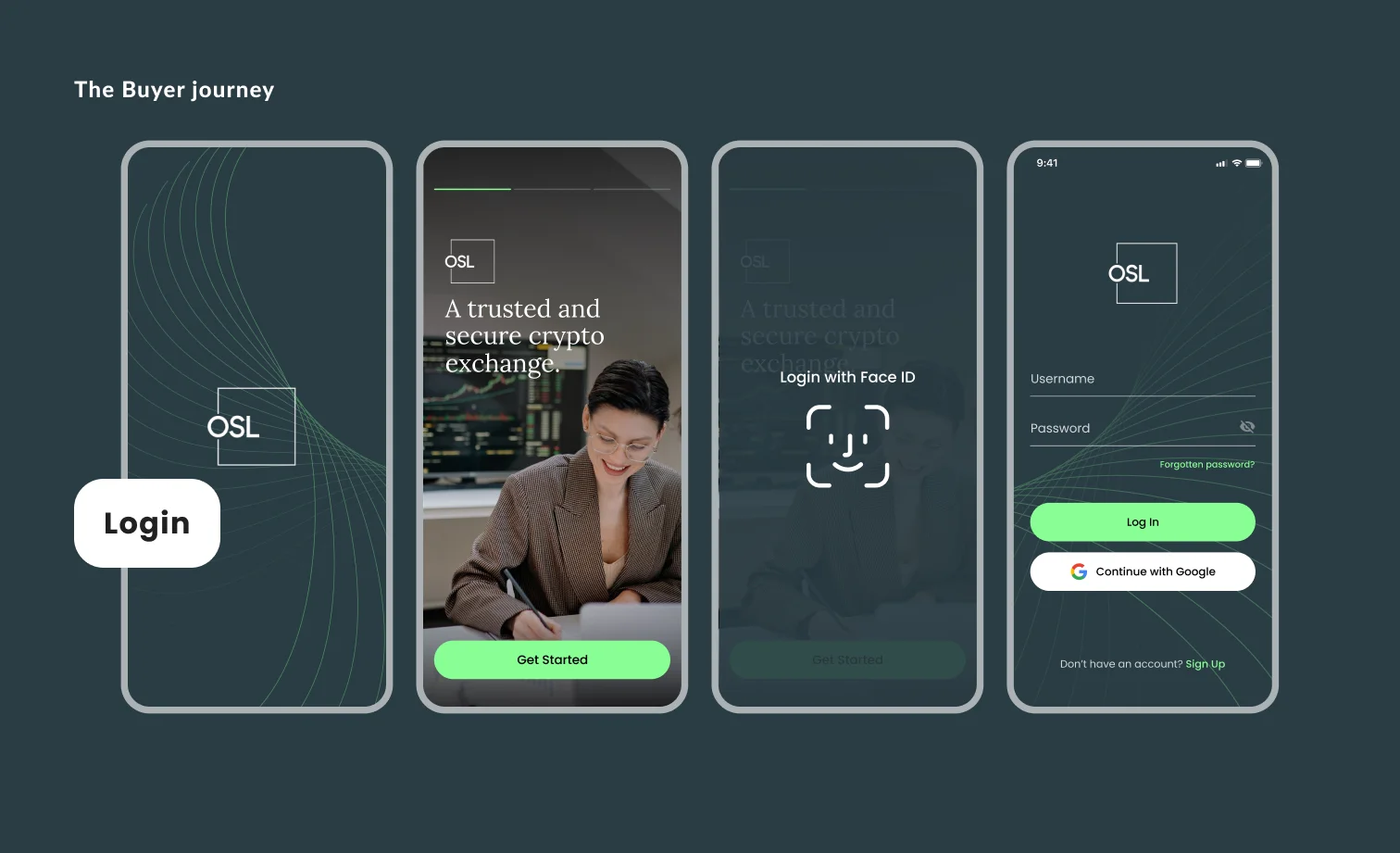
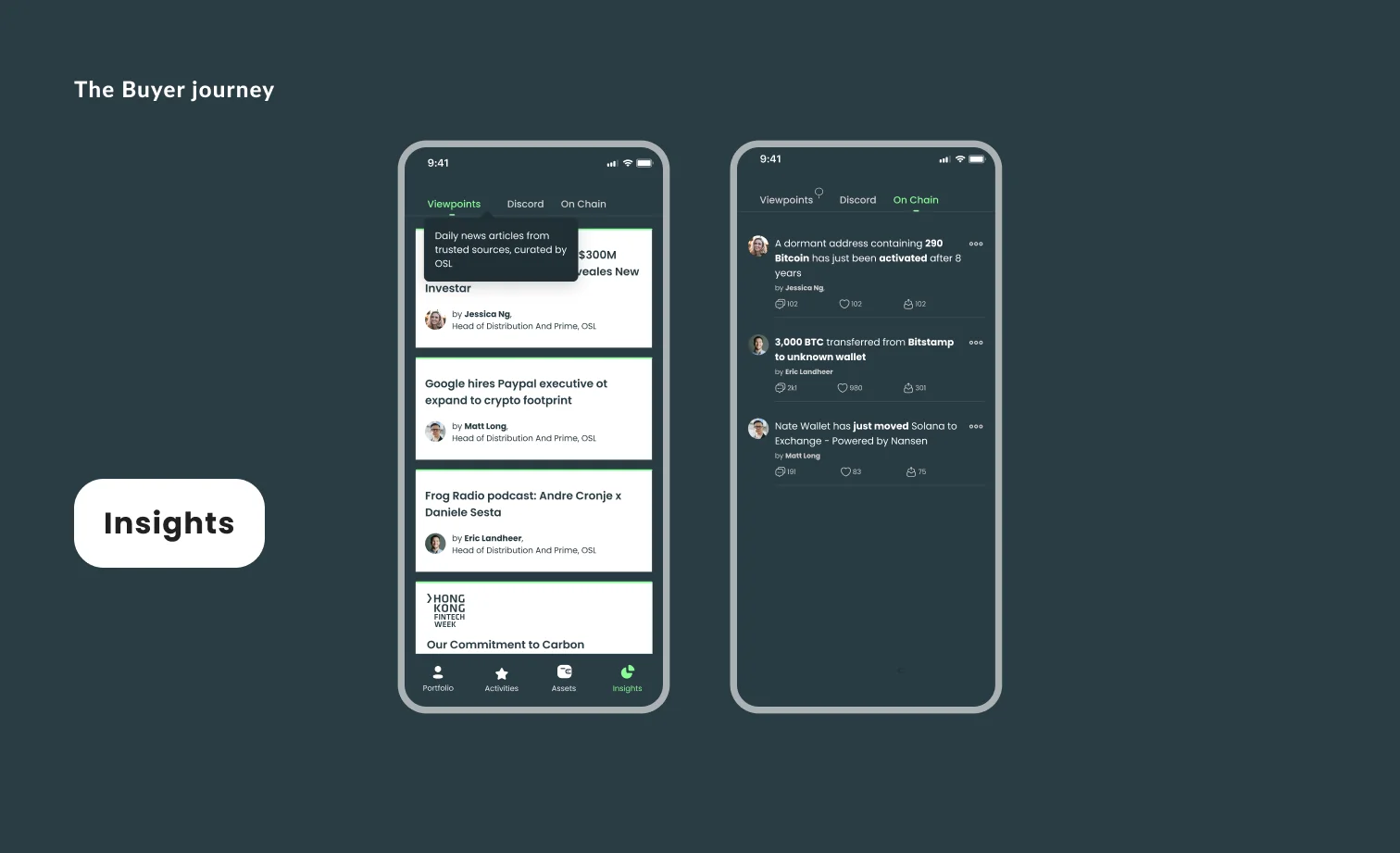
/ Design System
Atomic Design, a principle that describes the smallest of UI elements as atoms (i.e. buttons, text input, accordions, or checkboxes) and increasingly larger components as molecules composed of atoms (i.e. a navigation menu, pop-up or toasters, card tiles, modal boxes). The idea is that as an atomic design system develops, it will lead to increasingly complex and grouped components (organisms), and eventually to entire layouts, pages, or templates.

/ Increase Velocity
Assemble digital experiences from a set of pre-existing atomic components makes the product design process dramatically faster. Not only does it reduce the amount of re-work for designers, but it also reduces re-work for engineers.

/ Scale Faster
Instead of punctuating our products with disjointed design elements, we can ensure that designers are working from the same UI library as captured in our design system, resulting in a better user experience.

/ Innovate More
With a design system, designers and engineers doesn’t need to spend time thinking about how a button looks, or what styling to provide a form field. Those decisions have already been made by a dedicated team.

/ New Business Potential Unlocked
/ Institution-First Trading Experience
By reimagining the public website, we helped reposition OSL from a product-led crypto exchange into a credible institutional-grade partner. The new structure gave institutional clients a clearer sense of OSL’s capabilities through a simplified, future-forward navigation and trustworthy visual language.
/ Scalable Trading Ecosystem
Beyond just brokerage, we introduced design foundations to support community-driven trading. This opened the door for social engagement, gamification, and knowledge sharing—elements rarely seen in institutional finance but highly valued by a new generation of traders.
/ Personalisation-Led Growth
We uncovered opportunities to weave in marketing personalisation across onboarding, account management, and dashboard experiences—unlocking a more tailored trading environment that could adapt to different levels of experience and client size.
04/ Closing
/ Lessons Learned
- Crypto ≠ Casual - Unlike consumer trading apps, institutional clients don’t want flashy, fast-moving visuals. They want accuracy, security, and trust—so every design decision had to reflect that gravitas without losing UX clarity.
- Design Language Can Build (or Break) Confidence - For first-time institutional users of crypto tools, confusing dashboards or poor onboarding flows create anxiety. Our focus on transparency and digestibility (especially in early touchpoints like account registration) was key to building long-term confidence.
- Scalability > Flash - While it’s tempting to chase wow-factor UI, we learned the real value for OSL was in systems thinking—creating reusable, flexible components that support expansion into new markets, clients, and asset types over time.